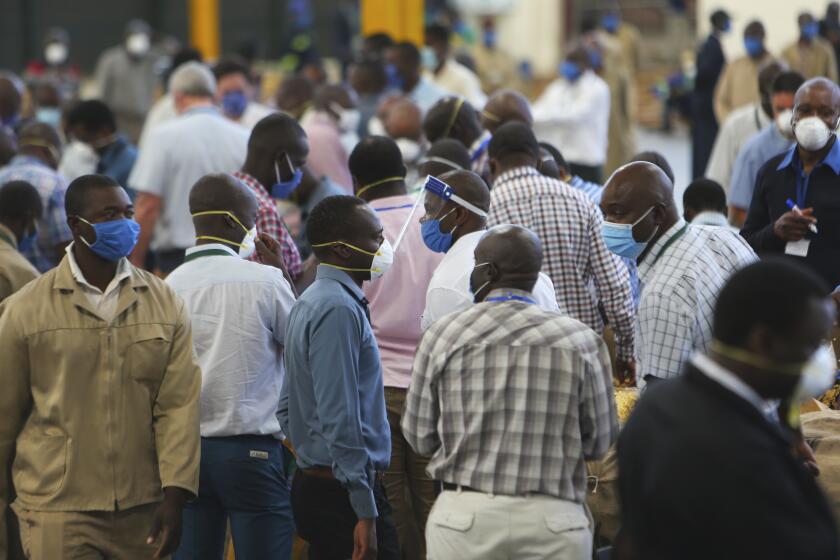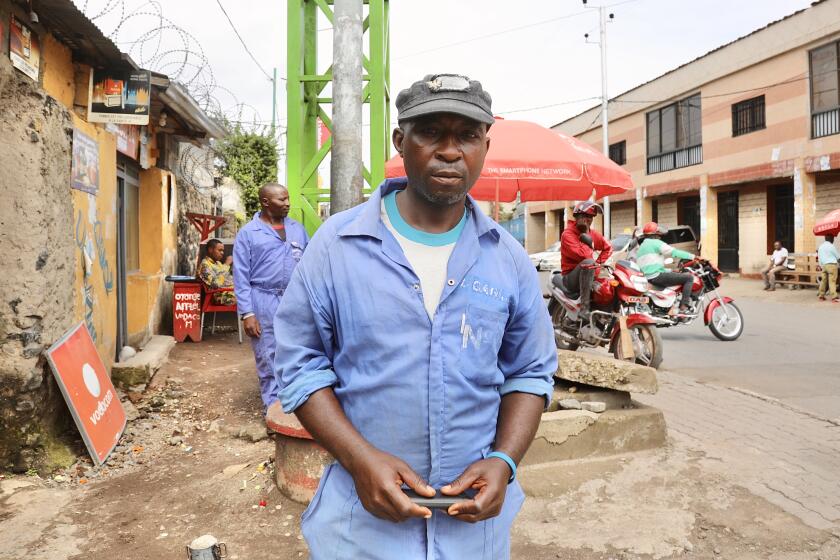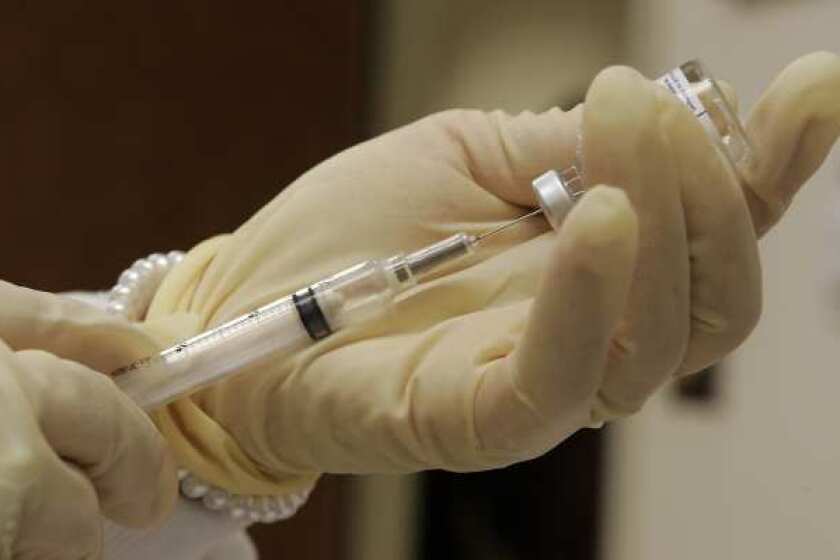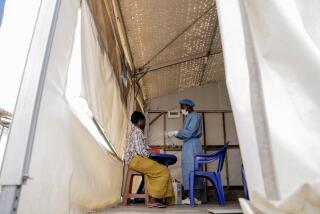COVID-19 pandemic is now reaching ‘full speed’ in Africa
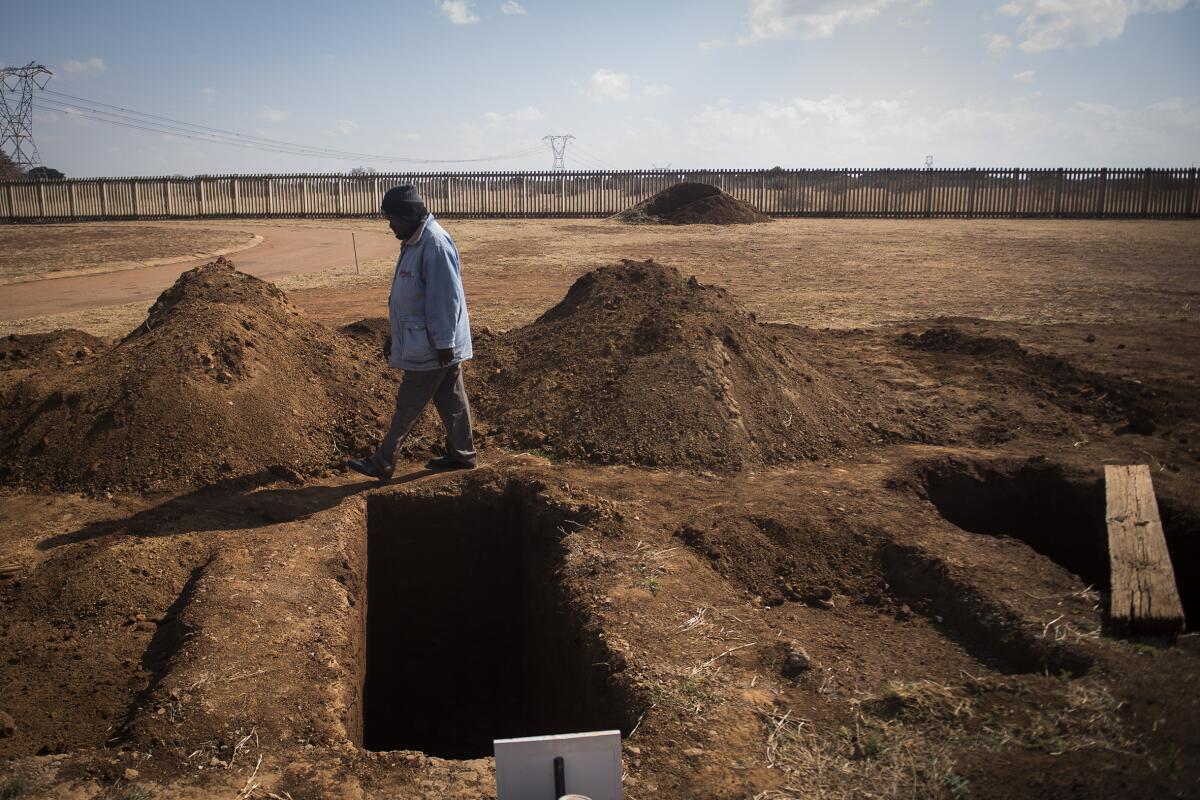
JOHANNESBURG, South Africa — The COVID-19 pandemic is reaching “full speed” in Africa, the chief of the continent’s Centers for Disease Control and Prevention said Thursday, with an official in South Africa reporting that a single province in that country is preparing 1.5 million graves.
Just a day after confirmed coronavirus cases across Africa reached the half-million mark, the total climbed past 522,000, with more than 12,000 deaths. With testing levels low, the real numbers are unknown.
South Africa has the most confirmed cases on the continent with over 224,000. For the first time, Gauteng province — home to Johannesburg and the capital, Pretoria — has the country’s most cases, with more than 75,000, or 33% of the national total.
Provincial official Bandile Masuku, a doctor, startled South Africans when he told reporters Wednesday that Gauteng is preparing over 1.5 million graves. “It’s a reality that we need to deal with,” he said, and it is the public’s responsibility “to make sure that we don’t get there.”
But the province sought to calm fears Thursday, saying in a statement that it “does not have over a million already open dug graves” and Masuku meant only that the province has enough space for that many. It also said that six members of the province’s COVID-19 War Room have tested positive for the virus.
Modeling has shown that South Africa will have nowhere close to that many deaths in the months ahead. Several models forecast between 40,000 and 80,000 by the end of the year.
Manhunts have begun after hundreds of people, some with the coronavirus, fled quarantine centers in Zimbabwe and Malawi.
Asked about the graves, Africa CDC chief John Nkengasong said “there’s absolutely no harm to think ahead” and prepare for the “worst-case scenario.”
’We’ve crossed a critical number here,” he said of the half-million milestone. “Our pandemic is getting full speed.”
He called for more mask wearing and for more testing, as just 5.7 million tests for the new virus have been conducted across the continent of 1.3 billion people.
With painful memories of many people dying of AIDS in Africa while waiting for accessible HIV drugs years ago, the Africa CDC on Thursday launched a consortium aimed at conducting more than 10 late-stage COVID-19 vaccine clinical trials on the continent as quickly as possible.
This city in central Africa has few doctors or ventilators. But it may be better prepared than many other places for coronavirus.
“We want to be sure we don’t find ourselves in the 1996 scenario where HIV drugs were available but it took almost seven years for those drugs to be accessible on the continent,” Nkengasong said.
With any COVID-19 vaccine, a “delay in Africa of even one year would be catastrophic,” he said.
He said the new consortium of African institutions would engage with the global GAVI vaccine alliance and other entities outside the continent amid efforts to ensure that a vaccine is distributed equitably from the start.
Those efforts are challenged by the United States and other countries assertively making deals with vaccine makers to secure supplies in advance.
U.S. preparedness for a COVID-19 vaccine rests heavily on medical supply companies with little track record of fulfilling government orders of that size.
The African Union last month said governments around the world should “remove all obstacles” to swift and equitable distribution of any successful COVID-19 vaccine, including by making all intellectual property and technologies immediately available.
Africa in recent days has begun taking part in COVID-19 vaccine trials in the face of increasing misinformation on the continent. Trials have begun in South Africa and Egypt, but Nkengasong said a “continent of 1.3 billion people deserves more than just two countries participating.”
A vaccine “is the only weapon to allow our lives to return to normal,” he said.
Many lifesaving vaccines have lagged between five and 20 years from the time they become available in high-income countries to when they’re available in low-income ones. That’s in part because local data is lacking, said Shabir Madhi, principal investigator of the Oxford COVID-19 vaccine trial in South Africa.
More to Read
Sign up for Essential California
The most important California stories and recommendations in your inbox every morning.
You may occasionally receive promotional content from the Los Angeles Times.
